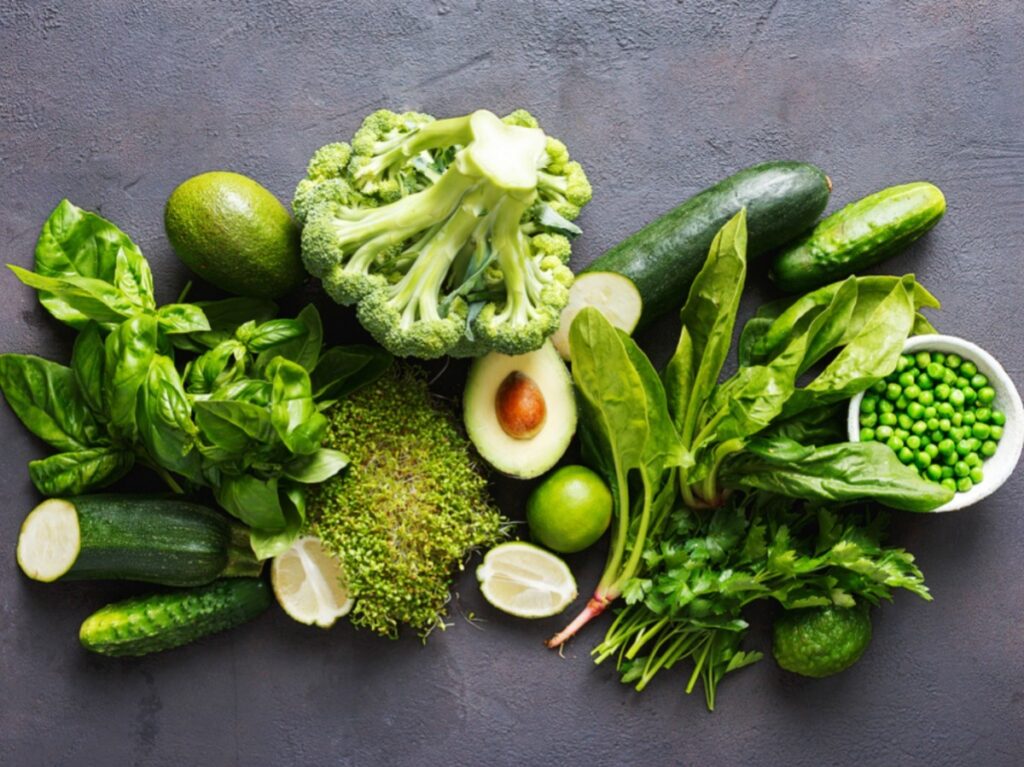Leafy vegetables are not only rich in vitamins and minerals but also serve as a great source of protein, particularly for those following a plant-based diet. Here’s a look at ten of the highest protein leafy vegetables and their health benefits.
1. Spinach
Protein Content: Approximately 2.9 grams per 100 grams
Health Benefits:
- Rich in Iron: Supports red blood cell production and combats fatigue.
- High in Antioxidants: Contains vitamins A and C, which help protect against oxidative stress.
- Bone Health: Contains vitamin K, essential for bone metabolism.
2. Kale
Protein Content: Approximately 4.3 grams per 100 grams
Health Benefits:
- Nutrient Dense: Packed with vitamins A, C, and K, and also contains omega-3 fatty acids.
- Heart Health: Rich in fiber and antioxidants that help lower cholesterol levels.
- Anti-Inflammatory Properties: Helps reduce inflammation due to its high content of glucosinolates.
3. Collard Greens
Protein Content: Approximately 3 grams per 100 grams
Health Benefits:
- Bone Support: High in calcium and vitamin K.
- Detoxification: Contains compounds that help detoxify the liver.
- Cancer Prevention: Rich in antioxidants and anti-inflammatory compounds.
4. Swiss Chard
Protein Content: Approximately 1.8 grams per 100 grams
Health Benefits:
- Blood Sugar Regulation: Contains compounds that help regulate blood sugar levels.
- Heart Health: High in potassium, which helps maintain healthy blood pressure.
- Vision Support: Rich in lutein and zeaxanthin, which support eye health.
5. Mustard Greens
Protein Content: Approximately 2.7 grams per 100 grams
Health Benefits:
- Rich in Vitamins: High in vitamins K, A, and C, supporting overall health.
- Digestive Health: Contains fiber that aids digestion.
- Cancer-Fighting Properties: Contains compounds that have been shown to fight cancer cells.
6. Arugula
Protein Content: Approximately 2.6 grams per 100 grams
Health Benefits:
- Low Calorie: Great for weight management while providing essential nutrients.
- High in Antioxidants: Protects against cellular damage.
- Bone Health: Rich in calcium and vitamin K.
7. Bok Choy
Protein Content: Approximately 1.5 grams per 100 grams
Health Benefits:
- Heart Health: Contains fiber, potassium, and phytonutrients.
- Bone Support: Rich in calcium and vitamin K.
- Immune Support: High in vitamins A and C.
8. Dandelion Greens
Protein Content: Approximately 2.7 grams per 100 grams
Health Benefits:
- Detoxification: Supports liver health and detoxification processes.
- Rich in Antioxidants: Protects cells from oxidative damage.
- Digestive Health: High in fiber and promotes healthy digestion.
9. Watercress
Protein Content: Approximately 2.3 grams per 100 grams
Health Benefits:
- High in Vitamins: Excellent source of vitamins A, C, and K.
- Bone Health: Vitamin K supports calcium absorption for bone strength.
- Anti-Cancer Properties: Contains compounds that may inhibit cancer cell growth.
10. Fenugreek Leaves
Protein Content: Approximately 4 grams per 100 grams
Health Benefits:
- Blood Sugar Control: Can help lower blood sugar levels.
- Rich in Fiber: Aids in digestion and helps control cholesterol.
- Hormonal Balance: May support women’s health and hormonal balance.
Conclusion
Incorporating these high-protein leafy vegetables into your diet can significantly boost your protein intake while providing a plethora of health benefits. From supporting bone health to enhancing immune function, these vegetables are versatile and can be added to salads, smoothies, soups, and stir-fries. Embrace the green goodness and enjoy a healthier lifestyle!





